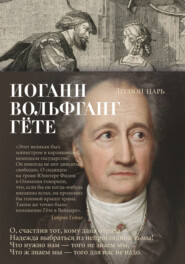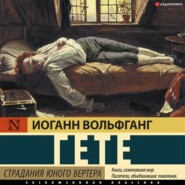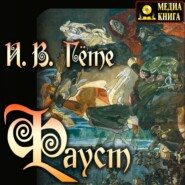По всем вопросам обращайтесь на: info@litportal.ru
(©) 2003-2024.
✖
Erotica Romana
Настройки чтения
Размер шрифта
Высота строк
Поля
Sullies both garden and fruit, till they deserve no defense.
Secretly coiled beneath bushes, where he befouls the sweet wellsprings,
Turning to poisonous drool Cupid's lifegiving dew.
Happy Lucretius knew how in his day to forego love completely,
Fearing not to enjoy pleasure in anyone's arms.
Fortunate Ancient, Propertius, for you a slave fetched the girls down
From the Aventine Hill, from Tarpeia's grove.
Cynthia then, when driving you out of such unchaste embraces,
Found you unfaithful, it's true, but she did find you whole.
Who would today dare attempt to escape from fidelity's ennui?
Love does not hold one back – only concern for one's health.
Even the woman we love may afford us uncertain enjoyment;
Nowhere can feminine lap safely encouch a man's head.
Matrimonial bed's insecure and so's fornication;
Husband, lover and wife pass to each other the hurt.
Think of those ages of gold when Jupiter followed his urges,
Chose Callisto one day, turned to Semel the next.
It was important to him to find thresholds of temples so sacred
Pure when, enamoured, he sought powerful entry to them.
Can you imagine the ragings of Juno if in love's skirmish
Poisonous weapons on her by her own spouse had been turned?
But we neo-pagans may not after all be abandoned entirely:
Yet there is speeding a god mercifully over the earth,
Quick and assiduous. Everyone knows him and ought to adore him,
Herald of Zeus: Hermes, the healing god.
Although his father's temple be fallen, and though of its pillars
Scarcely a pair yet records ancient glory adored,
Nevertheless the son's place of worship still stands, and forever
Will there the ardent requests alternate with the thanks.
Only one favor I beg of you, Graces (I ask it in secret —
Fervent my prayer and deep, out of a passionate breast):
My little garden, my sweet one, protect it and do not let any
Evil come near it nor me. Cupid will hold out his hand:
O, and entrusting myself to the rascal, I beg you please may I
Do so in pleasure with no danger or worry or fear.
XVIII
I cannot think I'd have gone with Julius Caesar to Britain;
To the Popina right here, Florus would tug me with ease.
Fogs of the dreary north remain a more baleful remembrance
Than in the kitchens of Rome tribes of assiduous fleas.
After today, I'll remember you even more kindly, tavernas,
You osterias, as you are called, aptly by those here in Rome.
That was the place I encountered my mistress today with the uncle
Whom she so often deceives, so that she can have me.
Here's where I sat at a table surrounded by good-natured Germans;
Over on that side the girl, finding a seat for herself
Next to her mother where, frequently shifting her bench, she arranged
Nicely for me to perceive profile and curve of her neck;
Speaks just a little more loudly than women in Rome are accustomed;
Significant glance as she pours – misses the glass with the wine
So that it spills on the table, and she with a delicate finger
Over its surface can draw circles in damp arabesque:
Her name entwining in mine, while my eyes most eagerly follow
All that her fingertip writes. She is of course well aware
That I am watching, so finally makes the V of the Roman
Five, with a virgule before. Quickly, as soon as I've seen,
She interlaces the circles, reducing them all to ornatest
Patterns – but still the sweet IV stood as engraved in my eye.
I sat there mutely and biting my passionate lips almost bloody
Half from delight at the ruse, partly from stifled desire:
Such a long time until dark, then another four hours of waiting.
– Sun, who tarries on high, contemplating Rome:
Greater never you've nor shall you in future see greater
Than Rome, O sun, as your priest, Horace, enraptured foretold.
Tarry no longer today. Go seek other realms beneath heaven.
Sooner depart and leave Rome's seven famed hills to me.
Please do the poet a favor and shorten the glorious hours
Which the painter devours, eagerly filling his eyes.
Cast now but one ardent glance, while descending, on noble façades and
Cupolas, pillars, and – last – up at the obelisks. Then
Hastily plunge to the ocean. Come view all the sooner tomorrow
That which, for centuries now, gods have let you enjoy:
Italy's shoreline so long overgrown with moist reeds, elevations
Somberly rising to shades cast by the bushes and trees.
First were but few simple dwellings here, suddenly sunlight discovered
Nations enlivening hills teeming with fortunate thieves.
Onto this spot they assembled such plunder, in your eye so splendid
All earth's remaining orb scarcely was worthy of note.
You watched a world being born here, watched the same world sink to ruin,
And from those ruins yet arise world again greater, perhaps.
O may I long by your light now behold this Rome. May the Parcæ
Spin the fine thread of my life slowly, taking great care.
O but come rushing the moment my love designated so sweetly.
Wonderful! Sound already the chimes? – No, but I heard at least three.
Thus, my dear muses, again you've beguiled the monotony for me.
Of this long interval while I was apart from my love.
All of you now, farewell! I'll be going now – don't be offended.
For, though you're proud, you'll concede: Cupid in my heart comes first.
XIX
Why did you fail to appear at the cot in the vineyard today, Love?
As I had promised I would, long I awaited you there.
"Dear, I had almost arrived when I saw, by good fortune, your uncle
Standing right there by the vines, looking now this way, now that.
Stealthily I slipped away." – Alas, what a misapprehension!
You saw the scarecrow, that's all. Nothing else drove you away.
Reeds and some discarded garments all hastily cobbled together —
Secretly coiled beneath bushes, where he befouls the sweet wellsprings,
Turning to poisonous drool Cupid's lifegiving dew.
Happy Lucretius knew how in his day to forego love completely,
Fearing not to enjoy pleasure in anyone's arms.
Fortunate Ancient, Propertius, for you a slave fetched the girls down
From the Aventine Hill, from Tarpeia's grove.
Cynthia then, when driving you out of such unchaste embraces,
Found you unfaithful, it's true, but she did find you whole.
Who would today dare attempt to escape from fidelity's ennui?
Love does not hold one back – only concern for one's health.
Even the woman we love may afford us uncertain enjoyment;
Nowhere can feminine lap safely encouch a man's head.
Matrimonial bed's insecure and so's fornication;
Husband, lover and wife pass to each other the hurt.
Think of those ages of gold when Jupiter followed his urges,
Chose Callisto one day, turned to Semel the next.
It was important to him to find thresholds of temples so sacred
Pure when, enamoured, he sought powerful entry to them.
Can you imagine the ragings of Juno if in love's skirmish
Poisonous weapons on her by her own spouse had been turned?
But we neo-pagans may not after all be abandoned entirely:
Yet there is speeding a god mercifully over the earth,
Quick and assiduous. Everyone knows him and ought to adore him,
Herald of Zeus: Hermes, the healing god.
Although his father's temple be fallen, and though of its pillars
Scarcely a pair yet records ancient glory adored,
Nevertheless the son's place of worship still stands, and forever
Will there the ardent requests alternate with the thanks.
Only one favor I beg of you, Graces (I ask it in secret —
Fervent my prayer and deep, out of a passionate breast):
My little garden, my sweet one, protect it and do not let any
Evil come near it nor me. Cupid will hold out his hand:
O, and entrusting myself to the rascal, I beg you please may I
Do so in pleasure with no danger or worry or fear.
XVIII
I cannot think I'd have gone with Julius Caesar to Britain;
To the Popina right here, Florus would tug me with ease.
Fogs of the dreary north remain a more baleful remembrance
Than in the kitchens of Rome tribes of assiduous fleas.
After today, I'll remember you even more kindly, tavernas,
You osterias, as you are called, aptly by those here in Rome.
That was the place I encountered my mistress today with the uncle
Whom she so often deceives, so that she can have me.
Here's where I sat at a table surrounded by good-natured Germans;
Over on that side the girl, finding a seat for herself
Next to her mother where, frequently shifting her bench, she arranged
Nicely for me to perceive profile and curve of her neck;
Speaks just a little more loudly than women in Rome are accustomed;
Significant glance as she pours – misses the glass with the wine
So that it spills on the table, and she with a delicate finger
Over its surface can draw circles in damp arabesque:
Her name entwining in mine, while my eyes most eagerly follow
All that her fingertip writes. She is of course well aware
That I am watching, so finally makes the V of the Roman
Five, with a virgule before. Quickly, as soon as I've seen,
She interlaces the circles, reducing them all to ornatest
Patterns – but still the sweet IV stood as engraved in my eye.
I sat there mutely and biting my passionate lips almost bloody
Half from delight at the ruse, partly from stifled desire:
Such a long time until dark, then another four hours of waiting.
– Sun, who tarries on high, contemplating Rome:
Greater never you've nor shall you in future see greater
Than Rome, O sun, as your priest, Horace, enraptured foretold.
Tarry no longer today. Go seek other realms beneath heaven.
Sooner depart and leave Rome's seven famed hills to me.
Please do the poet a favor and shorten the glorious hours
Which the painter devours, eagerly filling his eyes.
Cast now but one ardent glance, while descending, on noble façades and
Cupolas, pillars, and – last – up at the obelisks. Then
Hastily plunge to the ocean. Come view all the sooner tomorrow
That which, for centuries now, gods have let you enjoy:
Italy's shoreline so long overgrown with moist reeds, elevations
Somberly rising to shades cast by the bushes and trees.
First were but few simple dwellings here, suddenly sunlight discovered
Nations enlivening hills teeming with fortunate thieves.
Onto this spot they assembled such plunder, in your eye so splendid
All earth's remaining orb scarcely was worthy of note.
You watched a world being born here, watched the same world sink to ruin,
And from those ruins yet arise world again greater, perhaps.
O may I long by your light now behold this Rome. May the Parcæ
Spin the fine thread of my life slowly, taking great care.
O but come rushing the moment my love designated so sweetly.
Wonderful! Sound already the chimes? – No, but I heard at least three.
Thus, my dear muses, again you've beguiled the monotony for me.
Of this long interval while I was apart from my love.
All of you now, farewell! I'll be going now – don't be offended.
For, though you're proud, you'll concede: Cupid in my heart comes first.
XIX
Why did you fail to appear at the cot in the vineyard today, Love?
As I had promised I would, long I awaited you there.
"Dear, I had almost arrived when I saw, by good fortune, your uncle
Standing right there by the vines, looking now this way, now that.
Stealthily I slipped away." – Alas, what a misapprehension!
You saw the scarecrow, that's all. Nothing else drove you away.
Reeds and some discarded garments all hastily cobbled together —

















